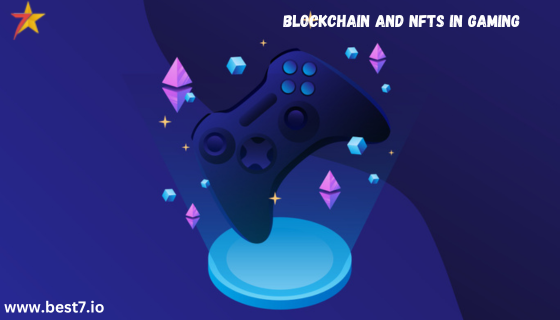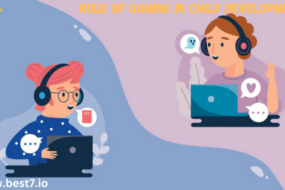
Blockchain and NFTs are rapidly changing the landscape of gaming, offering new schemes of digital ownership, asset monetization, and player engagement. As players acquire the capacity to truly own and trade their in-game assets, blockchain-based gaming innovations are raising prospects of a future where virtual goods may carry real value and be turned into real money.
Decentralized Operations and Player Investment
Offering a new perspective of decentralized operation, the gaming industry is testing new waters of player investment, digital collectibles, autonomy, and economic value. As early as this decade, gaming may offer adventures and rewards that bring value not only to the players but also to developers offering new experiences and greater rewards.
The Emergence of Play-to-Earn Gaming Models
Several facts should be considered with respect to the future of play-to-earn gaming and its influence on the industry: By 2023, the $1 billion mark in transaction volume was surpassed by Axie Infinity, showcasing how blockchain games allow players to earn income through trading NFT creatures. By 2027, play-to-earn gaming is expected to account for at least 30% of online games, emphasizing the growing significance of asset ownership.
Advantages of Play-to-Earn Gaming
Play-to-earn gaming offers several advantages, shaping the future of the industry. Players benefit from greater control over their goods and ownership of transactions, while developers engage with motivated players. However, there are challenges to consider in this evolving model.
Key Features of Play-to-Earn Gaming
- Incentivized Engagement: Players earn cryptocurrency, encouraging deeper engagement.
- Virtual Economies: Decentralized, player-centered economies determine the value of in-game assets.
- Cross-Game Asset Portability: Assets can be transferred between games, projected to grow significantly by 2025.
- New Revenue Streams for Developers: Developers earn from in-game marketplace transactions.
- Player Empowerment: Decentralization ensures players maintain ownership of their assets.
The Revolution of Digital Collectibles
NFTs have redefined the digital collectible market, providing assets with unique identifiers on the blockchain. This innovation ensures authenticity and value for gaming assets, exemplified by platforms like Decentraland and The Sandbox, which allow players to invest in virtual land as NFTs.
Why Digital Collectibles Matter in Gaming
Digital collectibles introduce a new era of player investment, treating virtual goods as valuable real-world assets. Key benefits include:
- Tradable Assets: Peer-to-peer marketplaces enhance social gaming.
- Ownership and Provenance: Blockchain secures authenticity.
- Player-Driven Economies: Rarity and interest dictate item value.
Decentralized Gaming and Smart Contracts
Decentralized gaming powered by blockchain and smart contracts allows for secure, tamper-proof transactions. Games like Gods Unchained demonstrate how NFTs establish trust and legitimacy in asset ownership, with decentralized gaming expected to capture 25% of the market by 2028.
Future Impact of Smart Contracts in Gaming
Smart contracts promise to reshape gaming by:
- Removing Intermediaries: Enabling direct asset trades.
- Promoting Player Freedom: Ensuring permanent asset ownership.
- Scaling Ecosystems: Supporting millions of users.
- Preventing Fraud: Blocking asset duplication and scams.
Industry Predictions: The Future of Digital Ownership
The future of gaming leans towards open, autonomous ecosystems driven by blockchain and NFTs. By 2030, gaming will integrate innovations like:
- Mainstream NFT Adoption: Uniting digital economies.
- Hybrid Economies: Combining in-game purchases with NFT marketplaces.
- Virtual Real Estate Growth: Expanding digital land investments.
- Improved Regulation: Protecting players in virtual markets.
A New Era for Gaming
With blockchain and NFTs defining the gaming industry, innovation and digital ownership will dominate the sector. The rise of decentralized gaming promises a transparent, player-focused ecosystem that secures investments and revolutionizes how we perceive and play games.












